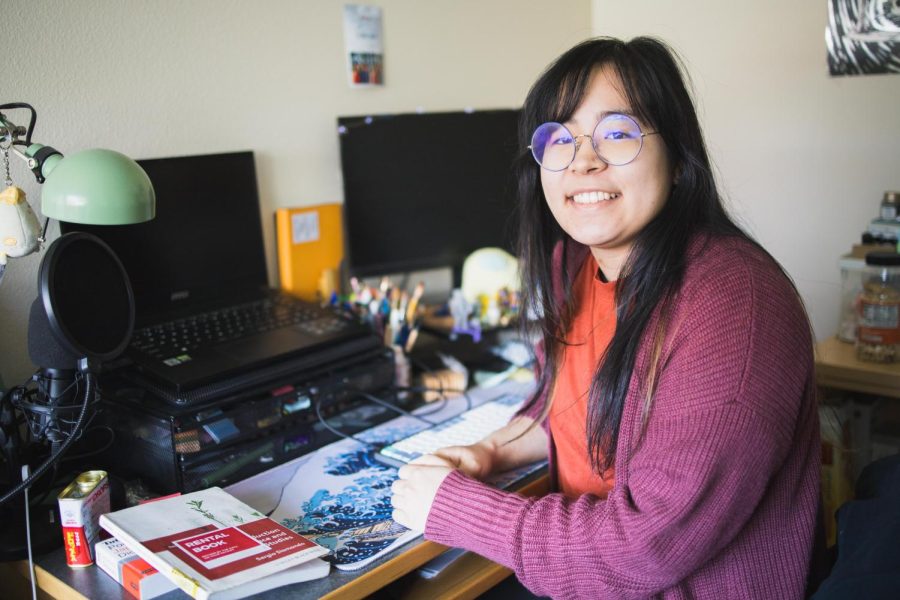Students Reflect on Job Opportunities Amidst the Pandemic
There seems to be an employment paradox introduced by the COVID-19 pandemic: students need to gain workplace experience through jobs and internships, but in order to get those opportunities, previous experience is often required.
Seattle University students have been affected by this predicament in different ways. While some have been able to maintain long-standing jobs, others have had to navigate canceled in-person opportunities and virtual substitutes. Many more have struggled to find work during this time.
Second-year Business Analytics major Lauren Louie used the free services LinkedIn and Handshake to find jobs before and during the pandemic. She described the process through which she obtained her current job as a Jumpstart Program student assistant at the Sundborg Center for Community Engagement and what it’s been like working there.
“After interviewing through Zoom, I got the position and have been happy with it ever since,” Louie wrote. “I am able to go into the office and can do some things remotely. It is a nice balance and doesn’t feel overwhelming at all.”
COVID-19 has made finding internships a more difficult process. Often, the default has been virtual opportunities, which students have reported employers view as less credible than in-person experiences.
Fourth-year Interdisciplinary Liberal Studies student Joseph (JP) Newmann has had two internships—one virtual and the other in-person. He viewed the opportunity to work in person as a privilege, knowing that others have not gotten the same chance.
“For some reason, there was that perspective that [online] doesn’t hold as much weight … and I have a big fault with that,” Newmann said. “Not everyone has the chance to spend 20-30 hours a week doing something. I felt safe doing it, but I know many of my classmates are not and were not able to get those experiences they wanted.”
Fourth-year Political Science and Strategic Communications double major Graham Wielgos shared that his internship was a drawn-out process. He had been offered to be a Public Diplomacy Intern for the U.S. State Department at the Embassy in Madrid—a virtual position. Wieglos felt the opportunity lacked the enriching growth experience that he sought, so he talked to his employer and they were able to find an apartment in Spain for him to do the internship in person during the summer of 2021.
“I got to work on a team and be in the same time zone and work like it was a normal internship,” Weigos said. “I was really lucky as most interns were still virtual. COVID-19 made it very different, but I was able to make the most out of it.”
Third-year Criminal Justice and Spanish double major Danielle Miller found balancing college academics and life with career opportunities a major challenge, noting that there’s an extra challenge when deciding to study abroad.
“I’m studying abroad next fall, so it doesn’t make sense to get a job that I’d have to be around for, but after I study abroad, I’ll be graduated so I’d like to have a job for when I come back,” Miller wrote. “It’s a tricky balance of trying to enjoy college and studying abroad, but still making sure I’m prepared for what comes next.”
For Kat Pursell, a third-year communications and media student, the search for internships had to take the back burner.
“I didn’t really have the time or energy to focus on internship applications,” Pursell wrote. “By the time I actually started looking in late February, early March, I believe, pretty much all of the journalism-related internship applications that I was interested in were already closed. I ended up applying to a few writing-related internships, such as a news writer for a bioscience company, but I have yet to hear back.”
Across her time at Seattle U, Fourth-year Finance and Business Analytics student Bethany Locke has held various positions, both on and off campus. Locke noticed the changing landscape of the job hiring process with face-to-face interviews reduced to pre-recorded tapes and paperwork.
With experience in earning multiple positions, Locke shared how to make an impression with employers and gain those critical opportunities. Her advice in navigating the current process is to network, using various on campus resources—her most notable connection is Seattle U alumni, who she spoke to after making a connection at the Albers Career and Placement Center.
“It was a really big blessing and [it’s because] I had a very close knit network to talk to very candidly about what work experiences and COVID-19 looks like,” Locke said. “Talking to a company gives you some things to work with, but talking to the people who work at the company firsthand will give you the best gauge.”
Another part of the job process is finding ways to stand out. Fourth-year Mechanical Engineering major Chiyo Nastasha Miyake stated that from their own experiences, being adaptable and personable is especially critical.
“I think a big aspect people miss is how to be personable: How do you talk to someone?” Miyake said. “Practice in the mirror, especially before an interview. Or get a friend to ask you questions. You may not have the exact skill set for a job, but you can try to change that skill set and make it applicable. That kind of adaptability is key.”
There’s a fear that you must find a job in your major. Newmann conceded that it comes from a privileged position, but sees it as vital to follow the path you’re most inclined to as it’s you that will be doing the work.
“Follow your gut,” Newmann said. “You might be pulled another way and that just might be your thing. It’s okay to have several paths and I think it’s about embracing the process. Having the courage to pursue what you want to do will have outcomes.”


